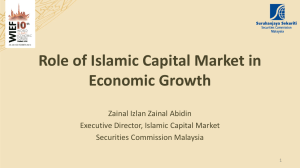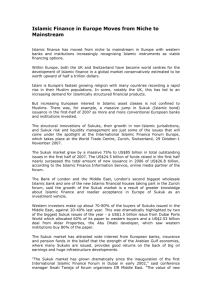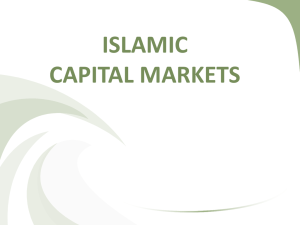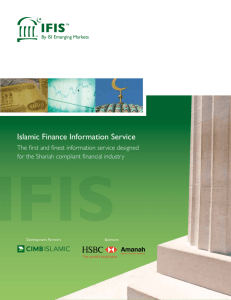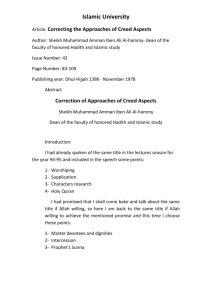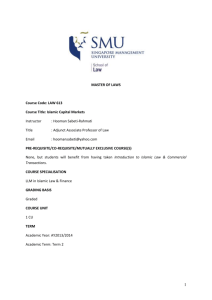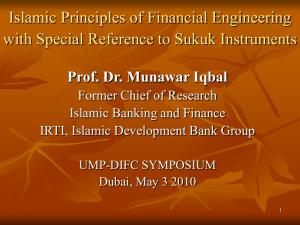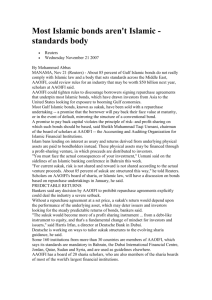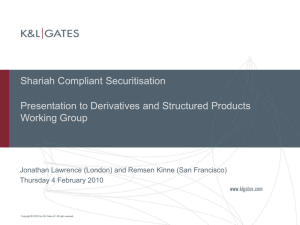Revisiting Islamic Bonds_March08
advertisement
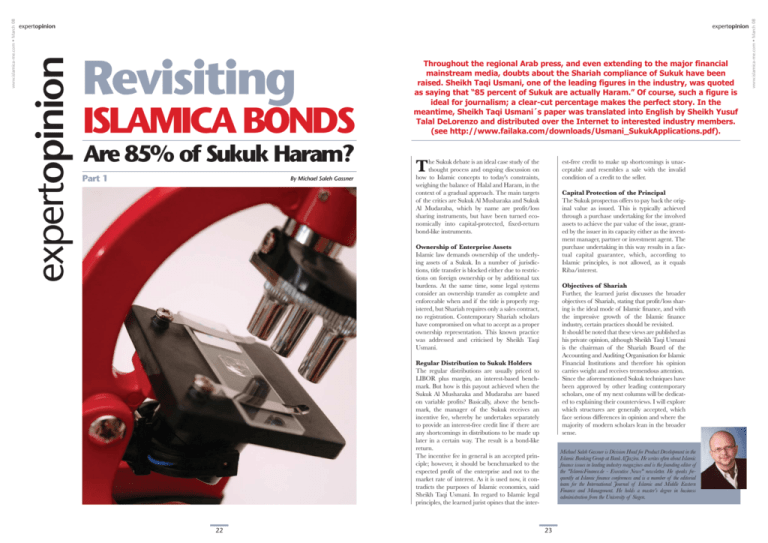
expertopinion Revisiting ISLAMICA BONDS Are 85% of Sukuk Haram? Part 1 By Michael Saleh Gassner Throughout the regional Arab press, and even extending to the major financial mainstream media, doubts about the Shariah compliance of Sukuk have been raised. Sheikh Taqi Usmani, one of the leading figures in the industry, was quoted as saying that “85 percent of Sukuk are actually Haram.” Of course, such a figure is ideal for journalism; a clear-cut percentage makes the perfect story. In the meantime, Sheikh Taqi Usmani´s paper was translated into English by Sheikh Yusuf Talal DeLorenzo and distributed over the Internet to interested industry members. (see http://www.failaka.com/downloads/Usmani_SukukApplications.pdf). T he Sukuk debate is an ideal case study of the thought process and ongoing discussion on how to Islamic concepts to today's constraints, weighing the balance of Halal and Haram, in the context of a gradual approach. The main targets of the critics are Sukuk Al Musharaka and Sukuk Al Mudaraba, which by name are profit/loss sharing instruments, but have been turned economically into capital-protected, fixed-return bond-like instruments. est-free credit to make up shortcomings is unacceptable and resembles a sale with the invalid condition of a credit to the seller. Capital Protection of the Principal The Sukuk prospectus offers to pay back the original value as issued. This is typically achieved through a purchase undertaking for the involved assets to achieve the par value of the issue, granted by the issuer in its capacity either as the investment manager, partner or investment agent. The purchase undertaking in this way results in a factual capital guarantee, which, according to Islamic principles, is not allowed, as it equals Riba/interest. Ownership of Enterprise Assets Islamic law demands ownership of the underlying assets of a Sukuk. In a number of jurisdictions, title transfer is blocked either due to restrictions on foreign ownership or by additional tax burdens. At the same time, some legal systems consider an ownership transfer as complete and enforceable when and if the title is properly registered, but Shariah requires only a sales contract, no registration. Contemporary Shariah scholars have compromised on what to accept as a proper ownership representation. This known practice was addressed and criticised by Sheikh Taqi Usmani. Objectives of Shariah Further, the learned jurist discusses the broader objectives of Shariah, stating that profit/loss sharing is the ideal mode of Islamic finance, and with the impressive growth of the Islamic finance industry, certain practices should be revisited. It should be noted that these views are published as his private opinion, although Sheikh Taqi Usmani is the chairman of the Shariah Board of the Accounting and Auditing Organisation for Islamic Financial Institutions and therefore his opinion carries weight and receives tremendous attention. Since the aforementioned Sukuk techniques have been approved by other leading contemporary scholars, one of my next columns will be dedicated to explaining their counterviews. I will explore which structures are generally accepted, which face serious differences in opinion and where the majority of modern scholars lean in the broader sense. Regular Distribution to Sukuk Holders The regular distributions are usually priced to LIBOR plus margin, an interest-based benchmark. But how is this payout achieved when the Sukuk Al Musharaka and Mudaraba are based on variable profits? Basically, above the benchmark, the manager of the Sukuk receives an incentive fee, whereby he undertakes separately to provide an interest-free credit line if there are any shortcomings in distributions to be made up later in a certain way. The result is a bond-like return. The incentive fee in general is an accepted principle; however, it should be benchmarked to the expected profit of the enterprise and not to the market rate of interest. As it is used now, it contradicts the purposes of Islamic economics, said Sheikh Taqi Usmani. In regard to Islamic legal principles, the learned jurist opines that the inter- 22 Michael Saleh Gassner is Division Head for Product Development in the Islamic Banking Group at Bank AlJazira. He writes often about Islamic finance issues in leading industry magazines and is the founding editor of the "IslamicFinance.de - Executive News" newsletter. He speaks frequently at Islamic finance conferences and is a member of the editorial team for the International Journal of Islamic and Middle Eastern Finance and Management. He holds a master's degree in business administration from the University of Siegen. 23 www.islamica-me.com • March 08 expertopinion www.islamica-me.com • March 08 expertopinion
